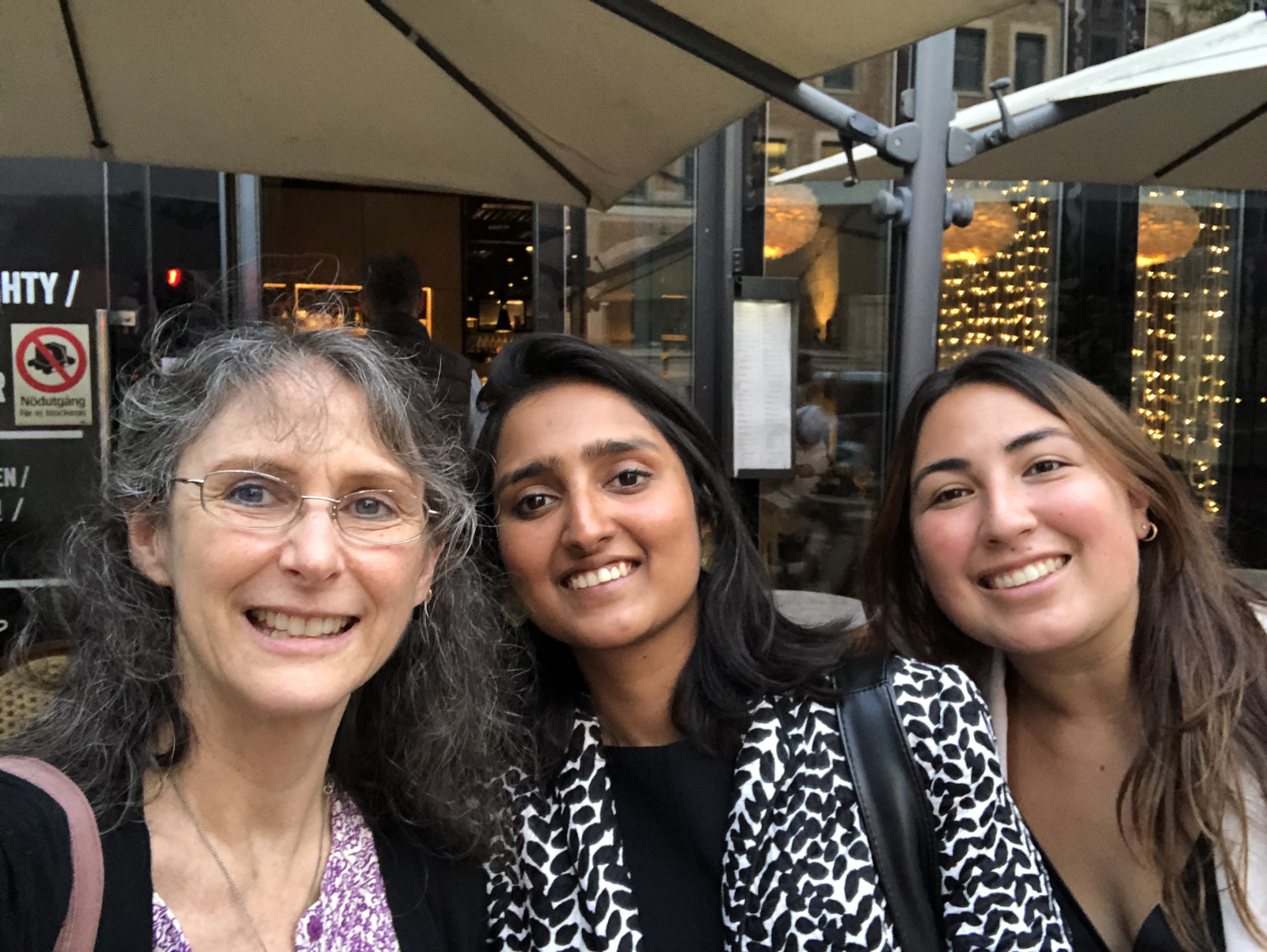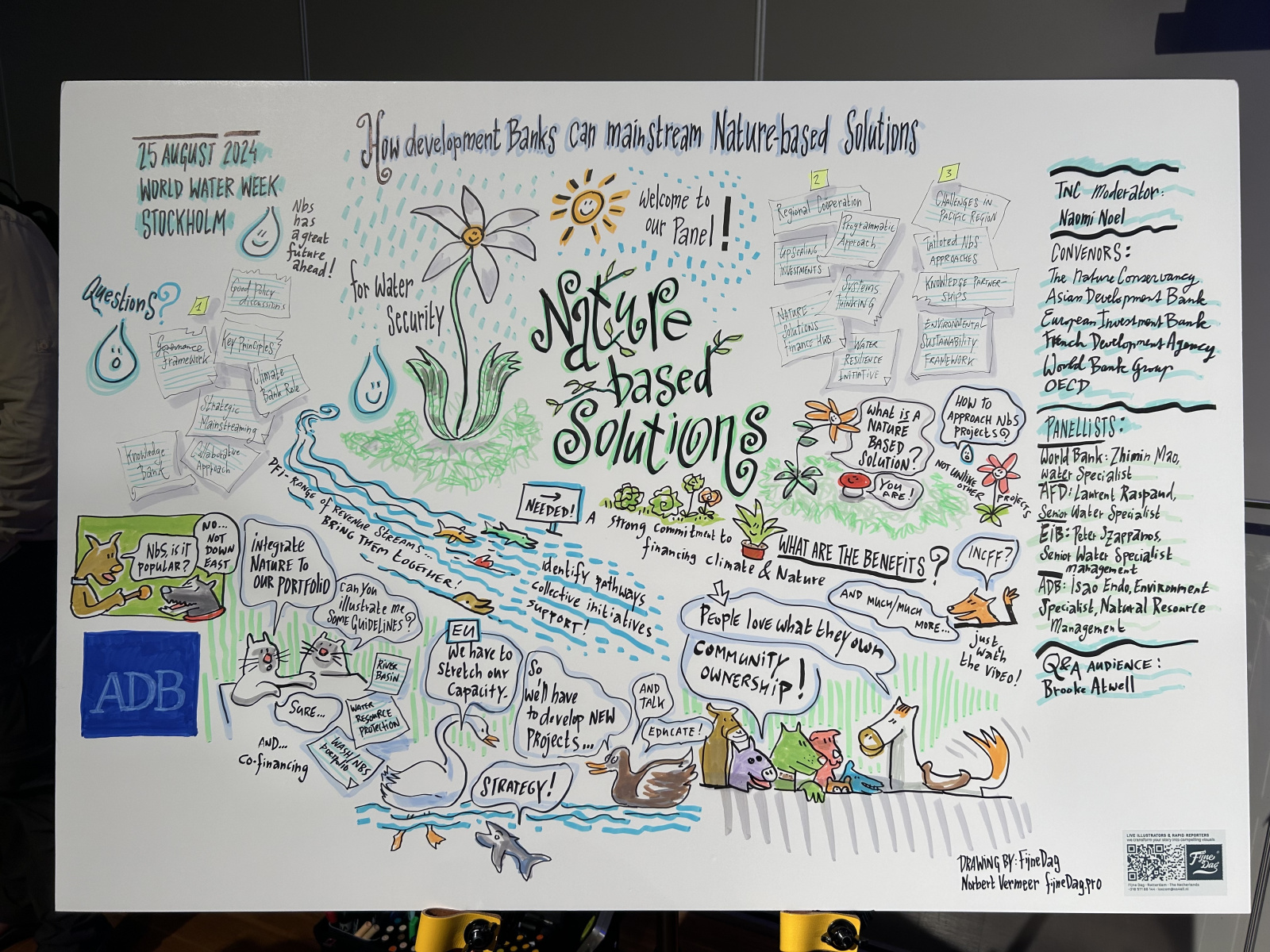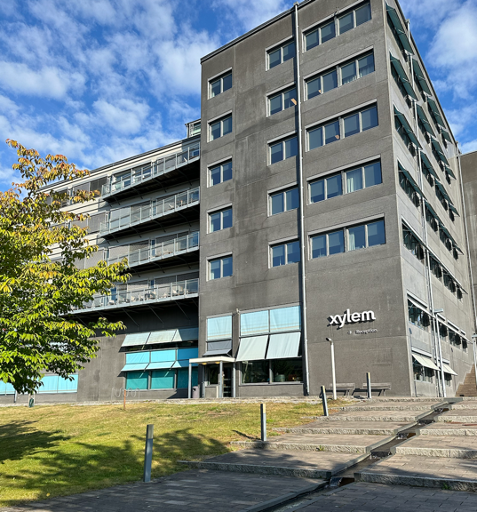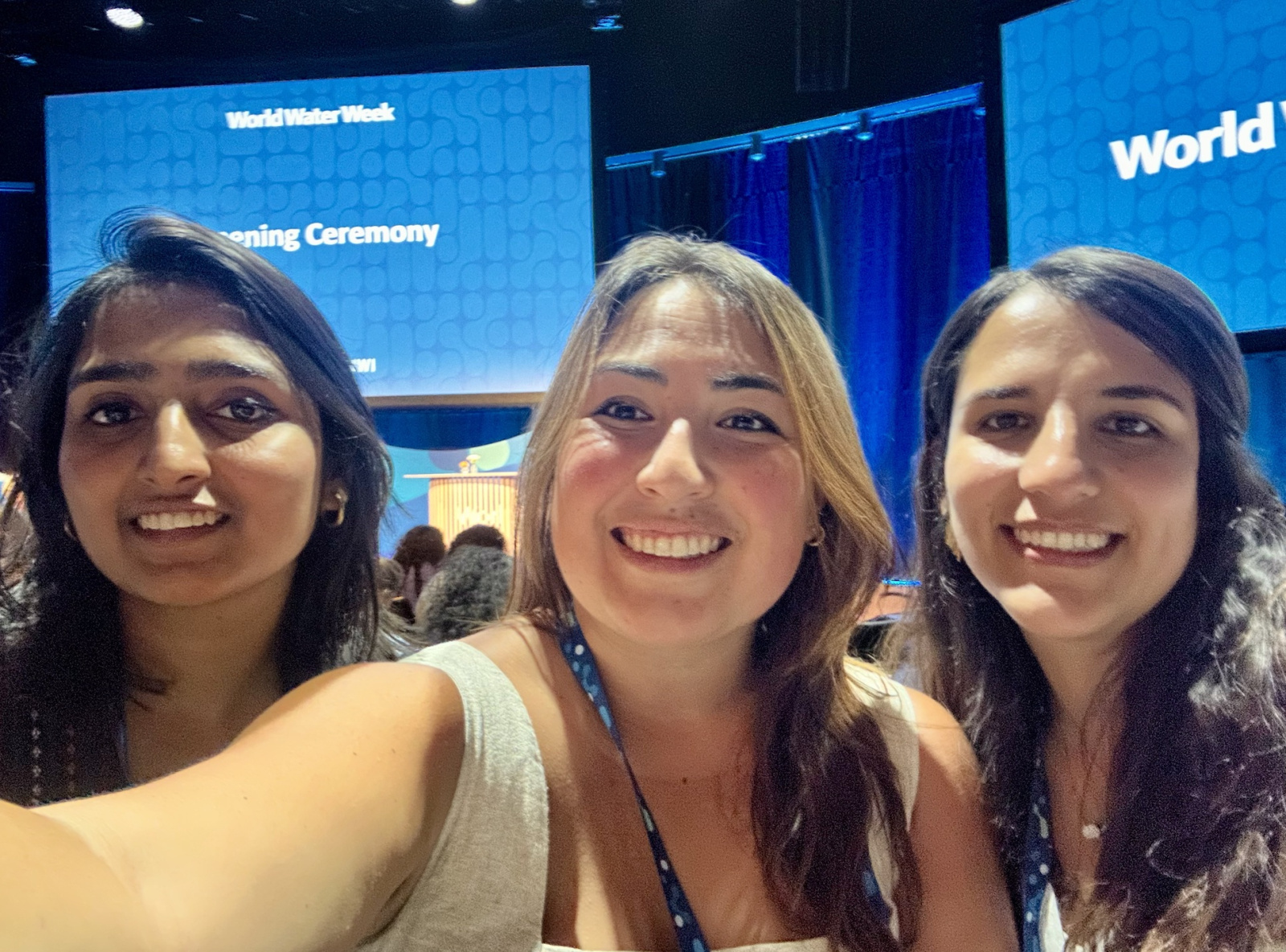News MIT students gain valuable insights from Stockholm World Water Week
Travel grantees attend Stockholm World Water Week and benefit from multidisciplinary discussions.
Avery Plachcinski September 12, 2024

From left to right: J-WAFS executive director Renee Robins and travel grant students Shubhi Goyal and Daniela Morales
J-WAFS travel grants allow MIT graduate students to attend select international water conferences to further their professional development for careers in the water sector. This year, Shubhi Goyal and Daniela Morales, master's students from MIT's Department of Urban Studies and Planning, received J-WAFS travel grants to attend World Water Week in Stockholm, Sweden in August. The 2024 conference theme, ‘Bridging Borders: Water for a Peaceful and Sustainable Future,’ focused on the interconnections between regional and global water systems and highlighted the importance of collaborative efforts for securing a sustainable future.

A hand-drawn poster illustrates how development banks can contribute to nature-based solutions
“Attending the Stockholm World Water Week 2024 was a transformative experience that has deepened my understanding of global water challenges and highlighted innovative solutions, particularly the integration of Indigenous knowledge and holistic systems thinking into developing resilient strategies,” says Shubhi. During her time at the conference, Shubhi was able to attend a variety of workshops related to her research interests, which lie in adapting local, nature-based, Indigenous solutions to tackle climate-related challenges and improve disaster resilience.
On the second day of the conference, Shubhi attended a workshop titled, “Beyond Consultation to Collaboration: Meaningful Engagement with Indigenous Peoples.” This session explained how Indigenous communities are vital partners in water management due to their generational knowledge. Shubhi reflected that the workshop provided a clearer framework for Indigenous engagement, which she plans to use to guide her current research project on traditional water management strategies in Kathmandu, Nepal. Shubhi also attended a workshop titled, “Empowering futures: Indigenous water allies,” on day three of the conference. This workshop further reinforced the importance of interdisciplinary approaches to address water challenges, including Indigenous knowledge, art, and community engagement. Overall, Shubhi gained valuable insights from the workshops that she is eager to apply to enhance her research methods.

Conference speaker addresses audience on transboundary water management
For Daniela, her involvement in workshops and networking events over the course of the conference widened her understanding of the interactions between urban planning, water management, and environmental sustainability. On the first day, she especially enjoyed a workshop titled, “Role Rolling: Multidisciplinary Solutions for Climate-Resilient Urban Water Management.” The session, organized through a partnership between an urban planning firm and a government agency, offered a practical approach to tackling urban water management challenges. This is relevant to her own research interests, which center around the management of water resources at various levels of government and in underserved communities.
On subsequent days, the workshops and networking opportunities provided insights that Daniela aims to incorporate into her own water management research. In particular, the “Water Security within Just Planetary Boundaries” workshop on day three and the “Words or Number: Reversing the Decline in Global River Health” workshop on day four emphasized the importance of integrating both qualitative and quantitative approaches in research. Moving forward, Daniela plans to employ both data approaches to drive further understanding of water challenges and change for water justice.

The Xylem, Inc. headquarters in Stockholm
Both grantees were able to make valuable connections with policymakers, engineers, and professionals in the water industry at the conference. They even had the opportunity to tour the facilities of Xylem Inc., a leading water technology company, J-WAFS Research Affiliate, and sponsor of the travel grants and Stockholm Junior Water Prize, which is part of World Water Week. Shubhi and Daniela visited the Xylem headquarters with J-WAFS executive director Renee J. Robins, who also attend the conference. At Xylem, they were welcomed by Vice President of Product Management Vikram Nanwani and Vice President, Central and Northern Europe Roxana Marin-Simen de Redaelli. Both Shubhi and Daniela were impressed by the way that Xylem has supported youth ingenuity and creativity in the water sector. Daniela mentioned that the tour made her recognize the crucial role of mentorship and the inclusion of youth in the water sector for advancing future water innovation and solutions.

From left to right: Shubhi, Daniela, and Luisa (another student at the conference) meet at the World Water Week opening ceremony
Daniela and Shubhi also had the chance to speak with Luisa Barrero Chimbi, a junior rapporteur at the conference, who provided insights into the conference and her experience as an environmental and sanitary engineer. The connections made with conference attendees were “highly informative for my work on equitable water policies and community resilience,” notes Shubhi. Daniela appreciated the opportunity to engage with a diverse range of professionals across the water sector, noting that she valued the “huge range of voices” present at the conference.
After attending the conference, the travel grantees returned to MIT campus inspired and equipped with new connections and insights from Stockholm World Water Week. Through seminars, workshops, panels, and discussions with global experts, they gained valuable knowledge that will shape their future academic and professional endeavors. “I’m incredibly grateful to Xylem and GoAigua for supporting this opportunity,” says Shubhi, “and I look forward to leveraging the connections and knowledge gained to make a meaningful impact in the water sector.” “I would like to sincerely thank Xylem and GoAigua for supporting this funding opportunity, as well as the Xylem team for welcoming us to their office and taking the time to show us the important work they do,” says Daniela.